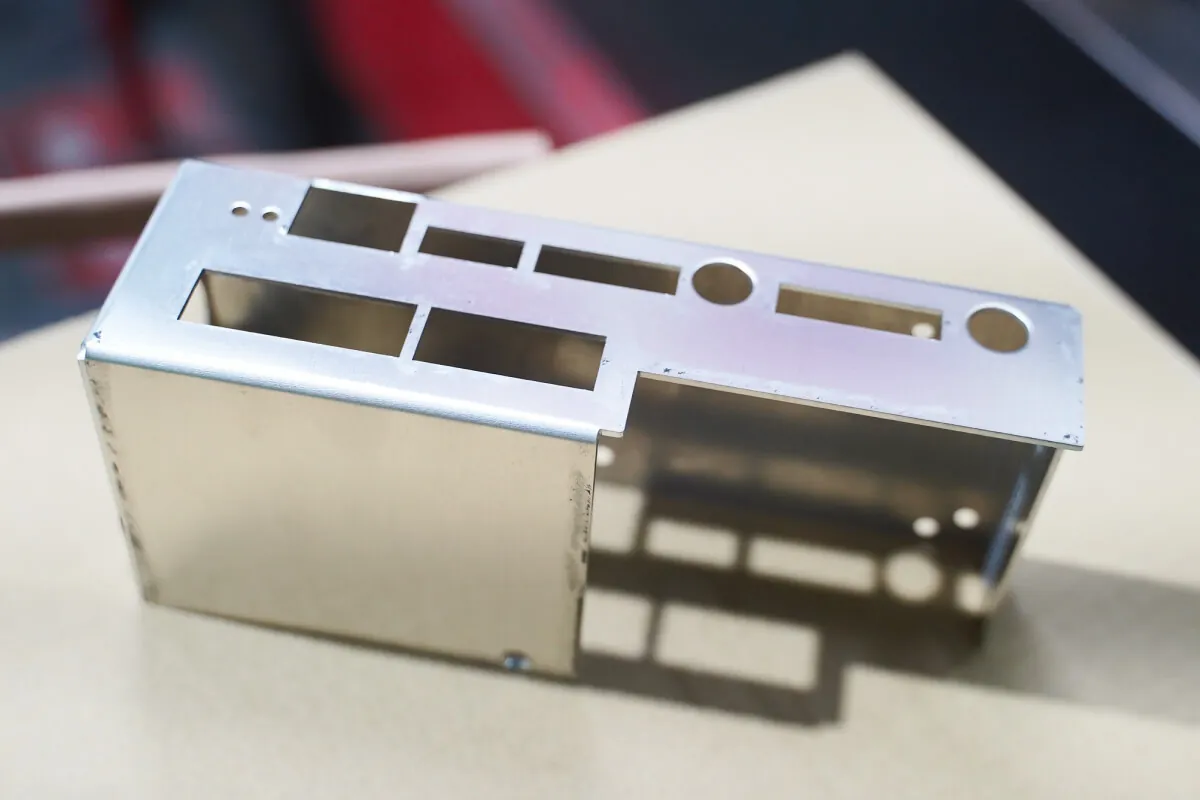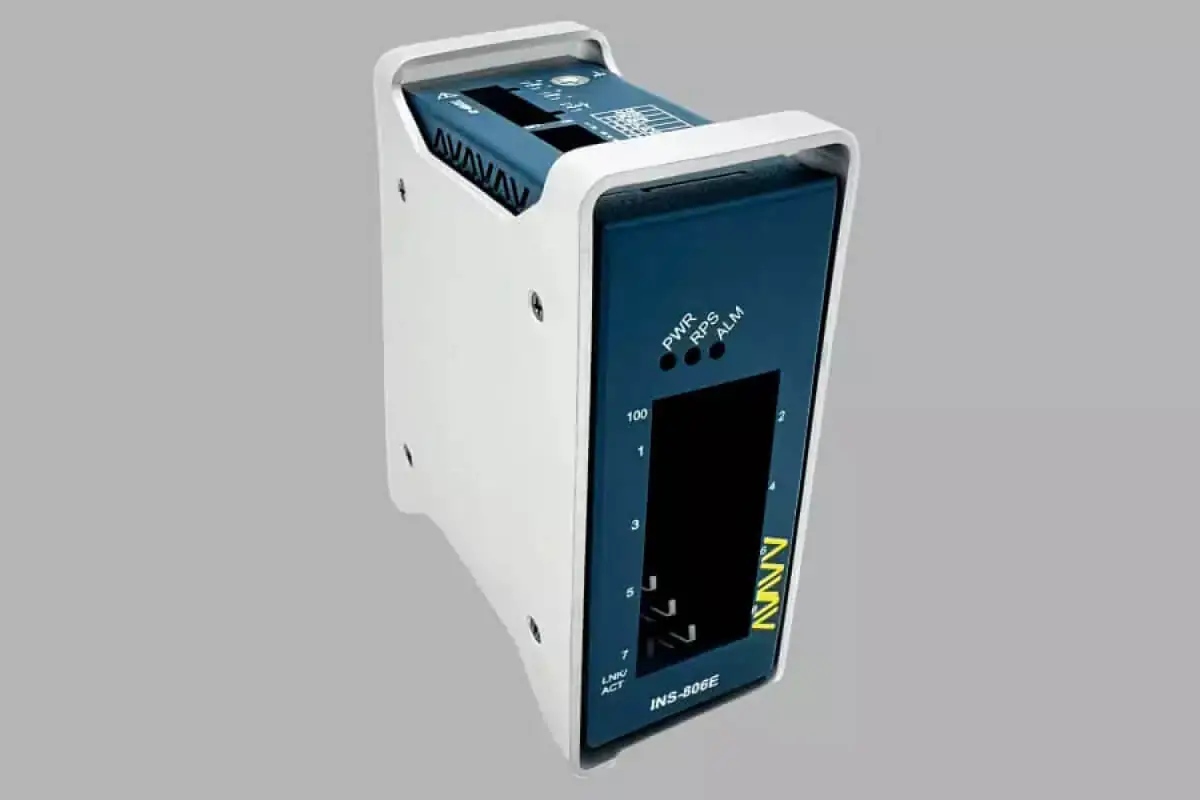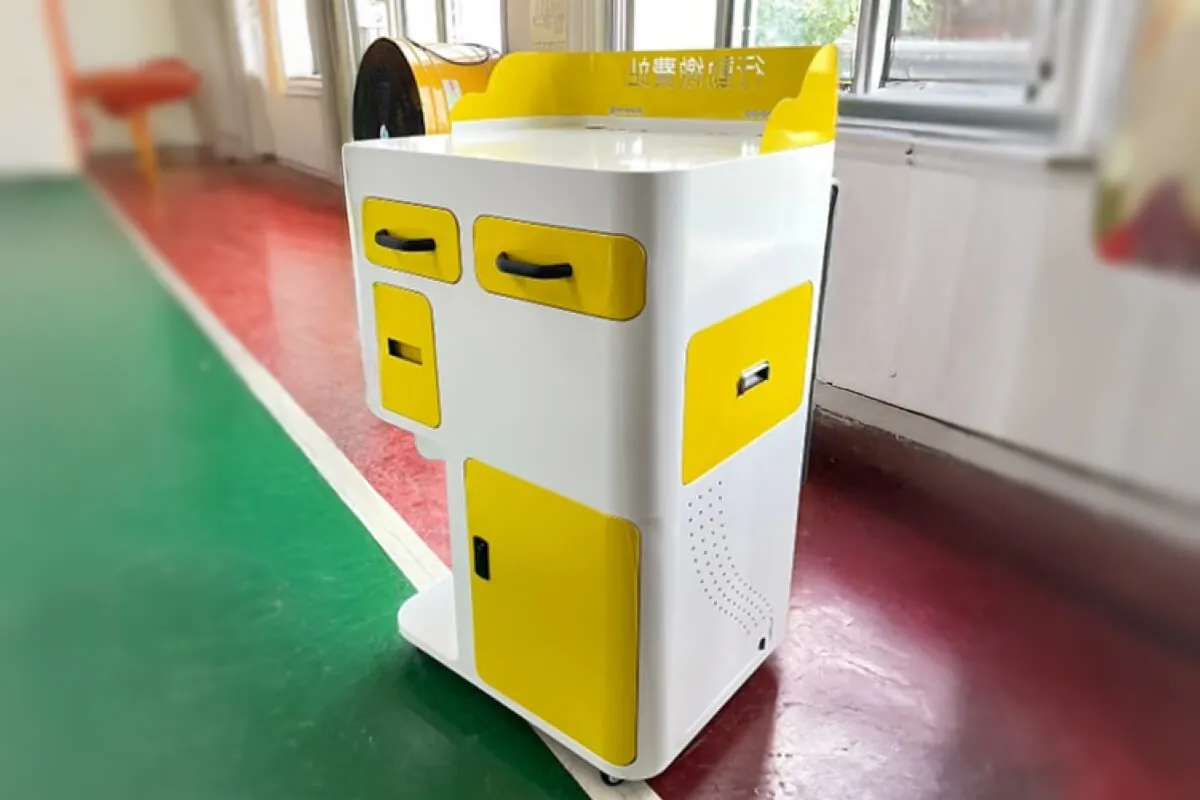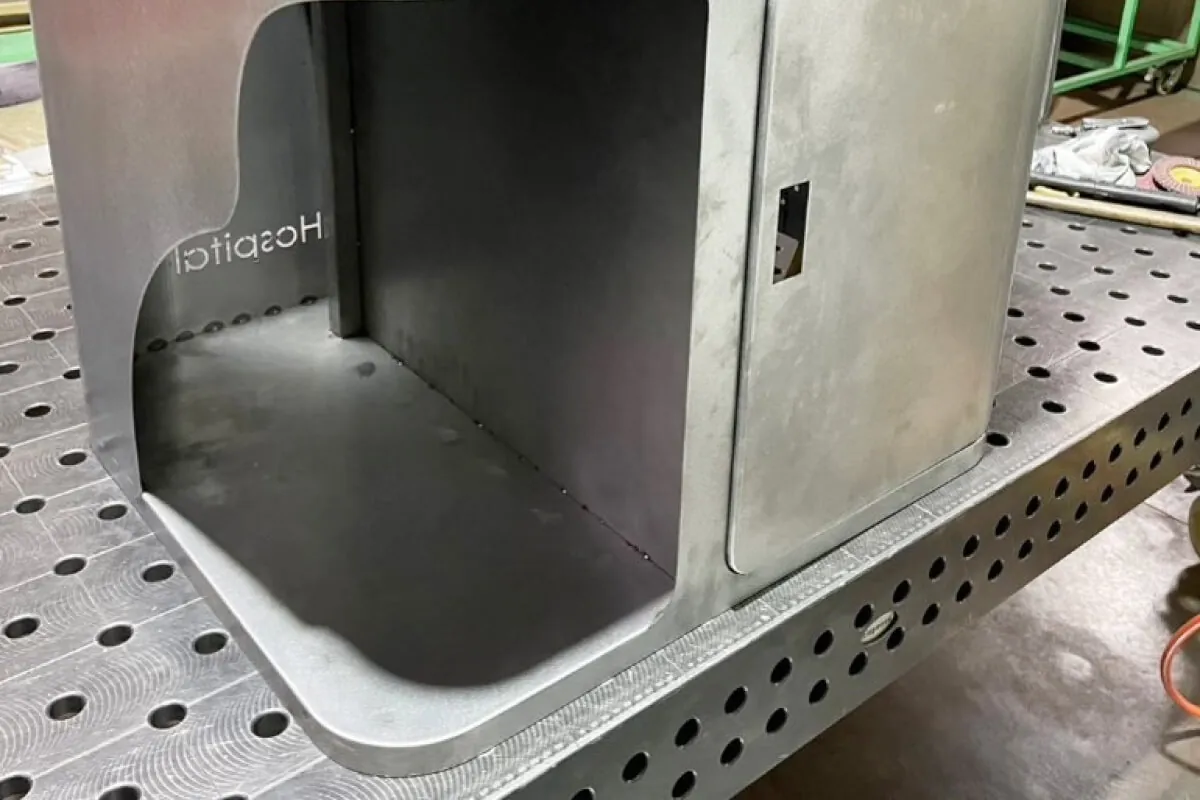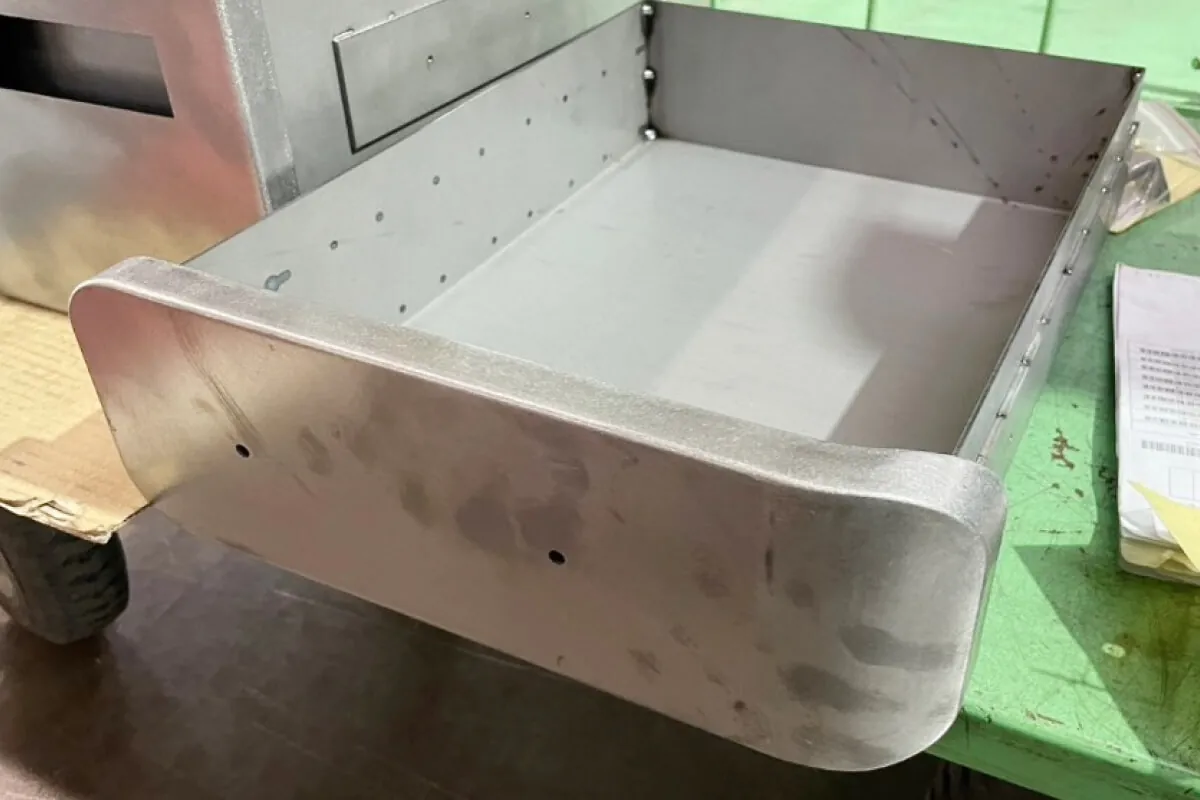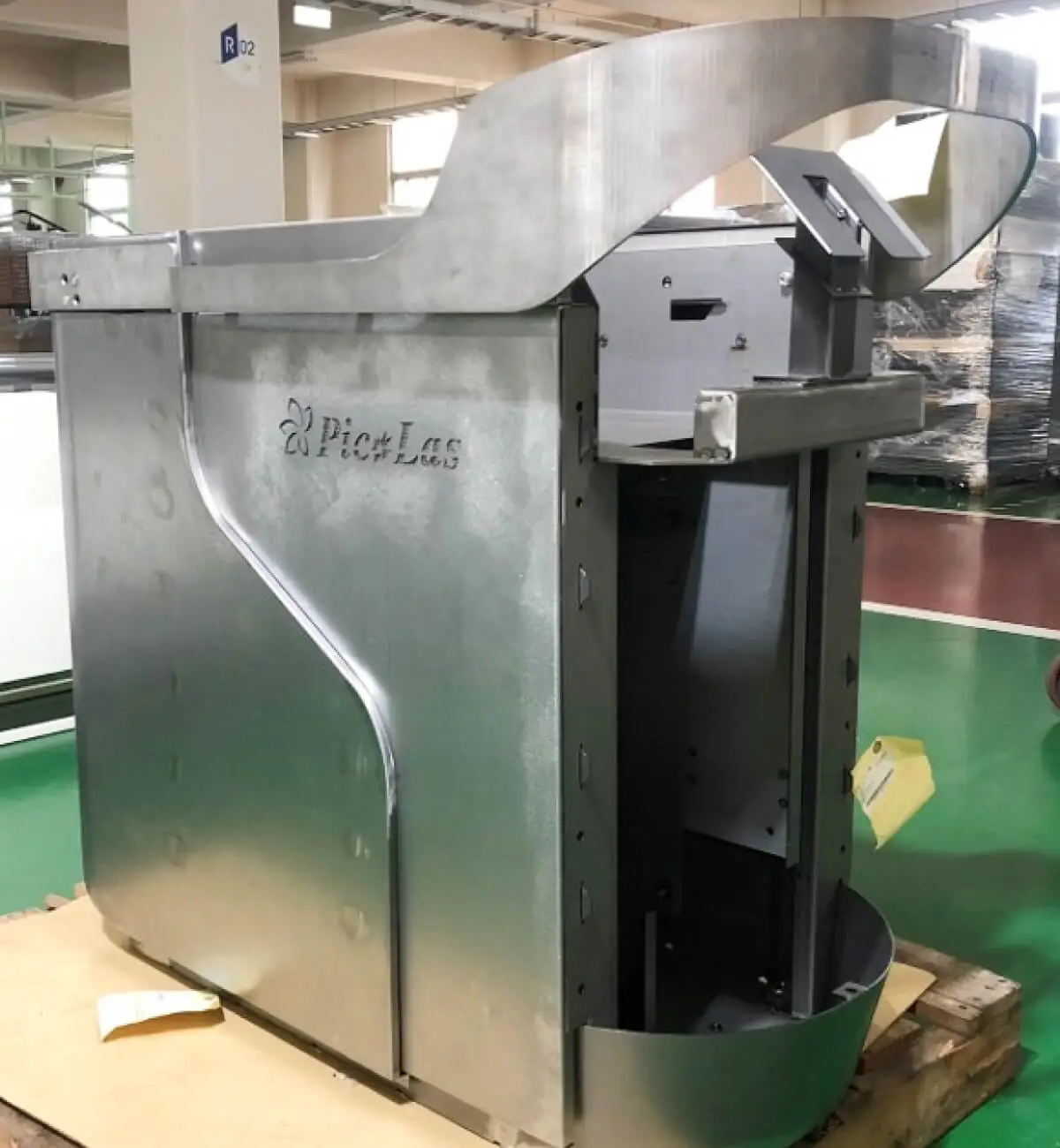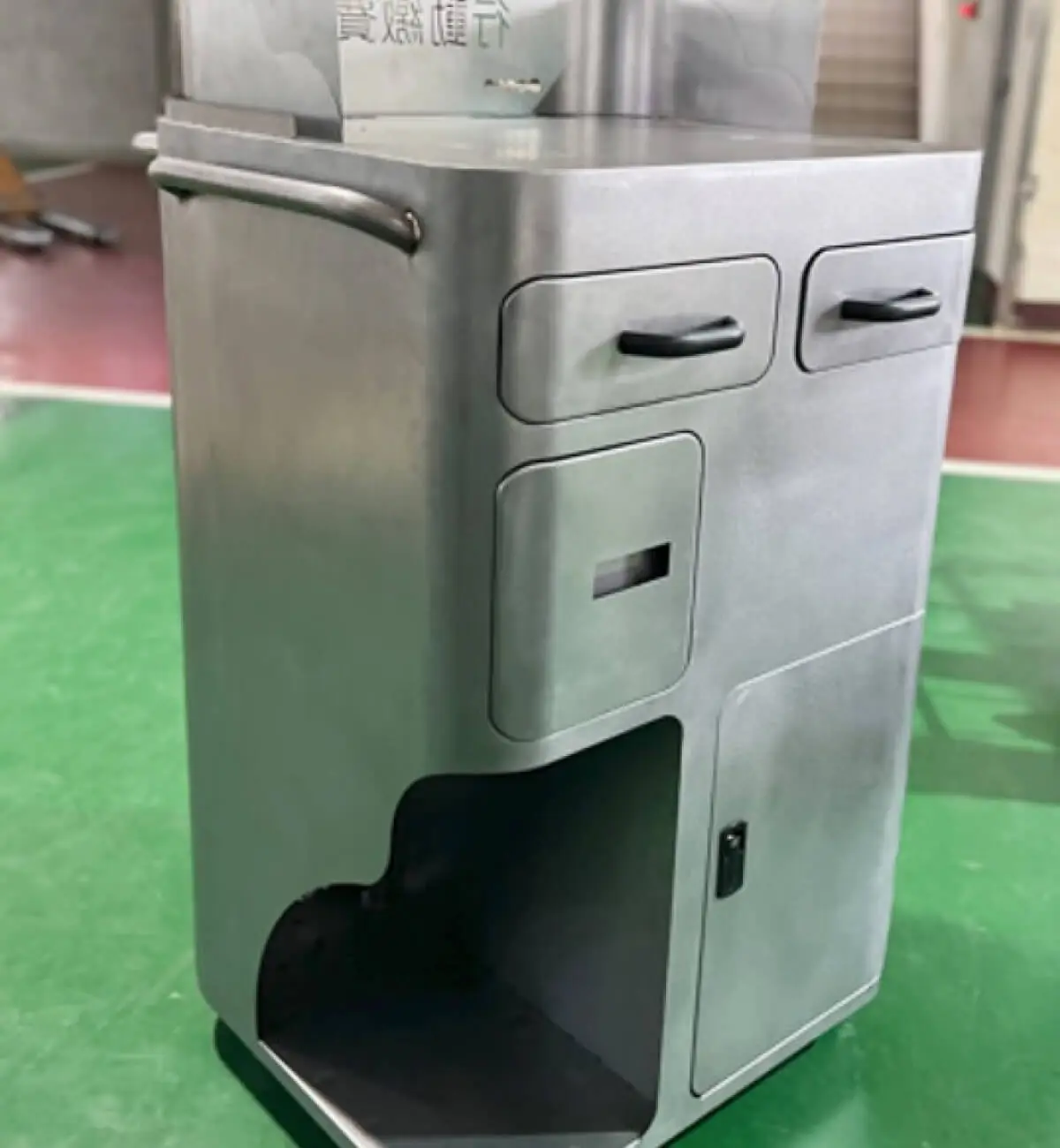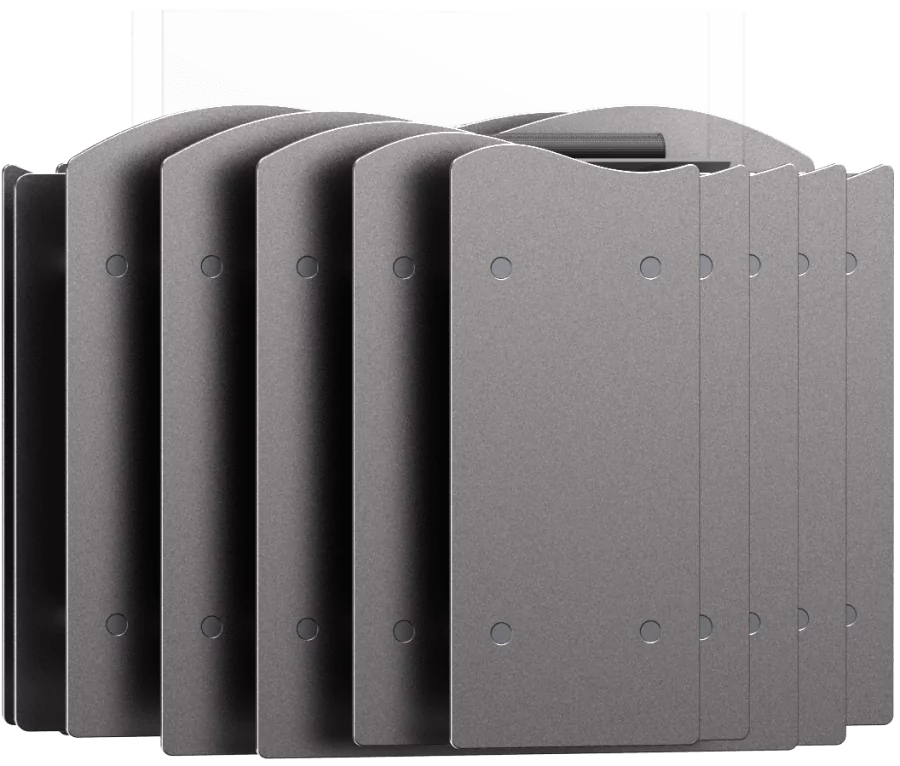Sheet metal fabrication of medical carts, medical equipment cases, trolleys and medical furniture have specific requirements that demand expert attention to detail and responsiveness to customer needs. Taiwa manufactures custom sheet metal medical trolleys and equipment cases that are designed to meet every requirement for convenience, compatibility with existing installations, ergonomic use, safety, security and hygiene.
What are the requirements for sheet metal manufacturing of medical carts, trolleys & clinical equipment cases?
Sheet metal for medical equipment must meet strict compliance requirements for biocompatibility, durability, corrosion resistance, and cleanability. These are gateway requirements for any sheet metal fabrication provider to be able to manufacture sheet metal medical equipment, medical carts, trolleys, equipment cases or medical furniture. Regulations vary from country to country but the standard requirements are that any medical, clinical or hospital equipment has to conform to higher health and safety standards than are needed for general sheet metal products.
What are 3 criteria for sheet metal manufacturing of medical & clinical equipment?
- Biocompatible, with no toxic substances, residues or by-products
- Easy to sterilise using standard antiseptic procedures and products
- Ergonomic to reduce risks of strain injuries or injuries from physical contact
How are Taiwa sheet metal medical carts & equipment cases made?
At Taiwa, we have a fully integrated single site sheet metal fabrication facility, where engineers and designers are working alongside the full process of cutting, forming, joining, assembly, quality testing and shipping of our products. This gives us a unique capability among sheet metal fabricators of being able to keep close track of every stage of every process to ensure that our sheet metal medical equipment cases, carts and trolleys conform to the design specifications and any pertinent certification requirements throughout the process.
We offer expert advice & insight through every project stage
The close attention we pay to every sheet metal fabrication project, from initial conversations with clients through to final shipping and follow-up, gives us the ability to both act as expert advisors for your medical sheet metal fabrication project and to offer unique insights and ODM experience to help you make good choices in the design for manufacture and ergonomic details of your final product.
Taiwa delivers attention to detail for precision sheet metal fabrication
There are many processes involved in the manufacturing of an ergonomic stainless steel clinical trolley that Taiwa designed as a multi-purpose platform for medical equipment and mobile clinical storage. You can see in the image above the precision forming and attention to ergonomic detail in the smoothly rounded edges of the drawer that we built into this unit.
Why do people use stainless steel to manufacture medical equipment?
Stainless steel is used to manufacture medical equipment, including crash carts, medication and service trolleys, equipment trolleys, medical workstations and medical furniture because it combines high resistance to corrosion with a good strength to weight ratio, making it a good choice for manufacturing robust enclosures, cases and furniture that can easily be sterilised and kept hygienic. Stainless steel is also highly biocompatible, and non-toxic.
Forming stainless steel into ergonomic shapes requires a high degree of skill and technical expertise, because it exhibits much more spring-back, or resistance to maintaining a formed shape, than most other types of sheet metal, which requires careful pre-bending calculations to ensure you achieve the desired profile. The other advantages of using stainless steel, however, outweigh this issue and make it the logical first choice for medical applications.
How does Taiwa use advanced sheet metal fabrication techniques to manufacture medical products?
Taiwa has the design experience, technical know-how and technology to apply modern, advanced, sheet metal fabrication techniques to making the very best medical products under strict quality control conditions. We implement continuous improvement practices in our manufacturing at technological, design and process levels to ensure the best possible results for our customers.
Advanced laser punch cutting & sheet metal bending machines
The Taiwa manufacturing facility in Taiwan is fully equipped with Japanese AMADA laser punch cutting technology and bending machines, and we use inert gas welding for joining sheet metal to achieve precise, distortion free results. High precision cutting, forming and joining reduces the need for additional correction or finishing work and improves the cost effectiveness of our sheet metal fabrication processes.
CAD predictive forming to ensure perfect profiles in stainless steel
Our suite of AMADA bending machines employ CAD predictive forming to calculate and allow for the spring back that is commonly encountered with stainless steel fabrication of medical equipment. Stainless steel forming and bending is extremely difficult to do with high precision without CAD predictive forming because stainless steel tends to resist being shaped more than other metals.
Why is Taiwa the best fit for your sheet metal medical equipment project?
At Taiwa we pride ourselves on our high quality sheet metal design and fabrication services, and are very happy to engage with our customers throughout the specification, design and fabrication processes of their project to ensure total satisfaction. Our open, involved, approach to sheet metal fabrication makes us the best fit for any sheet metal medical equipment project, no matter how large or small.
We keep track of regulatory requirements to ensure that what we build for you is going to be fit for purpose, both technically and in terms of conforming to certification for specific industry requirements. For medical equipment cases, medical trolleys and carts this is especially important for hospitals and other public medical service providers. Contact us to find out how we can help make your medical equipment project a success.

